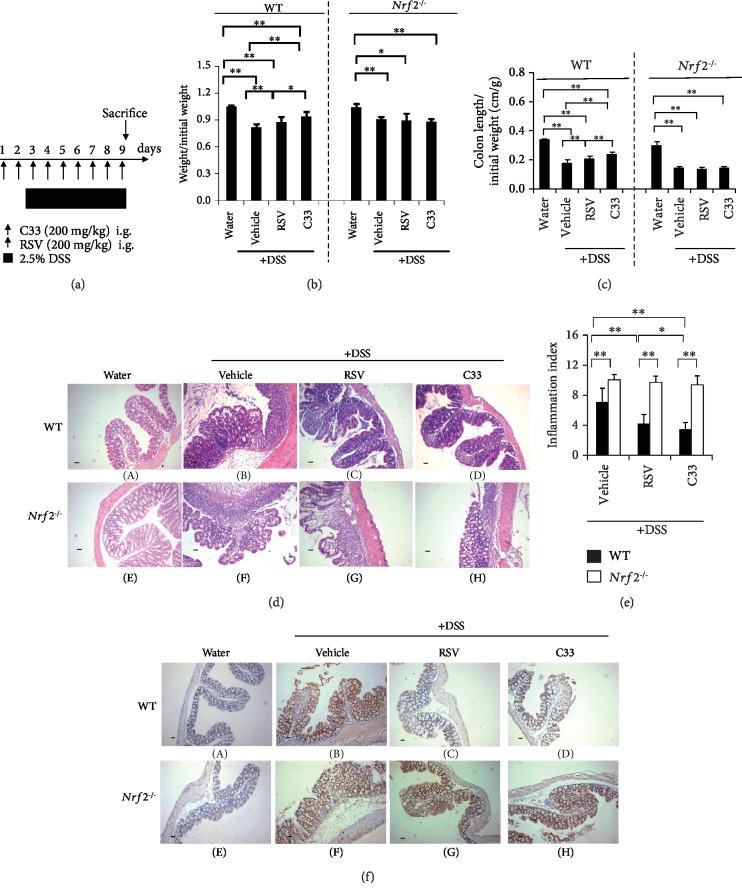Figure 2.
C33 ameliorates DSS-induced colitis in WT but not Nrf2−/− mice. (a) Experimental protocol for C33 and RSV treatment in DSS-induced colitis. WT and Nrf2−/− mice were given C33 (200 mg/kg i.g.), RSV (200 mg/kg i.g.), or vehicle (10% ethanol) daily. Two days later, while the mice continued daily treatment with RSV or C33, they were also given normal drinking water or water containing 2.5% DSS for 7 days. (b) Evaluation of the body weight of WT and Nrf2−/− mice after treatment as in (a). Initial body weight was set as 1. (c) Colon length from mice treated as in (a). Colon length is represented as a ratio (cm/g) relative to the starting weight of mice prior to DSS administration (n = 7–9). (d) Representative H&E staining of colon sections from mice treated as in (a) (scale bar, 50 μm; original magnification, ×40). WT, A–D; Nrf2−/−, E–H. Water (A and E), mice on normal drinking water without any treatment. +DSS (B–D and F–H), mice on drinking water containing 2.5% DSS. (e) Combined scores for the severity of crypt damage (mean ± SD, n = 3; ∗p < 0.05, ∗∗p < 0.01). (f) IHC staining of colonic sections with anti-nitrogen tyrosine (scale bar, 100 μm; original magnification, ×200). WT, A–D; Nrf2−/−, E–H. Water (A and E), mice on normal drinking water without any treatment. +DSS (B–D and F–H), mice on drinking water containing 2.5% DSS. The WT mice on normal drinking water (control) was set at 1. Values are mean ± SD (n = 5; ∗p < 0.05, ∗∗p < 0.01).

